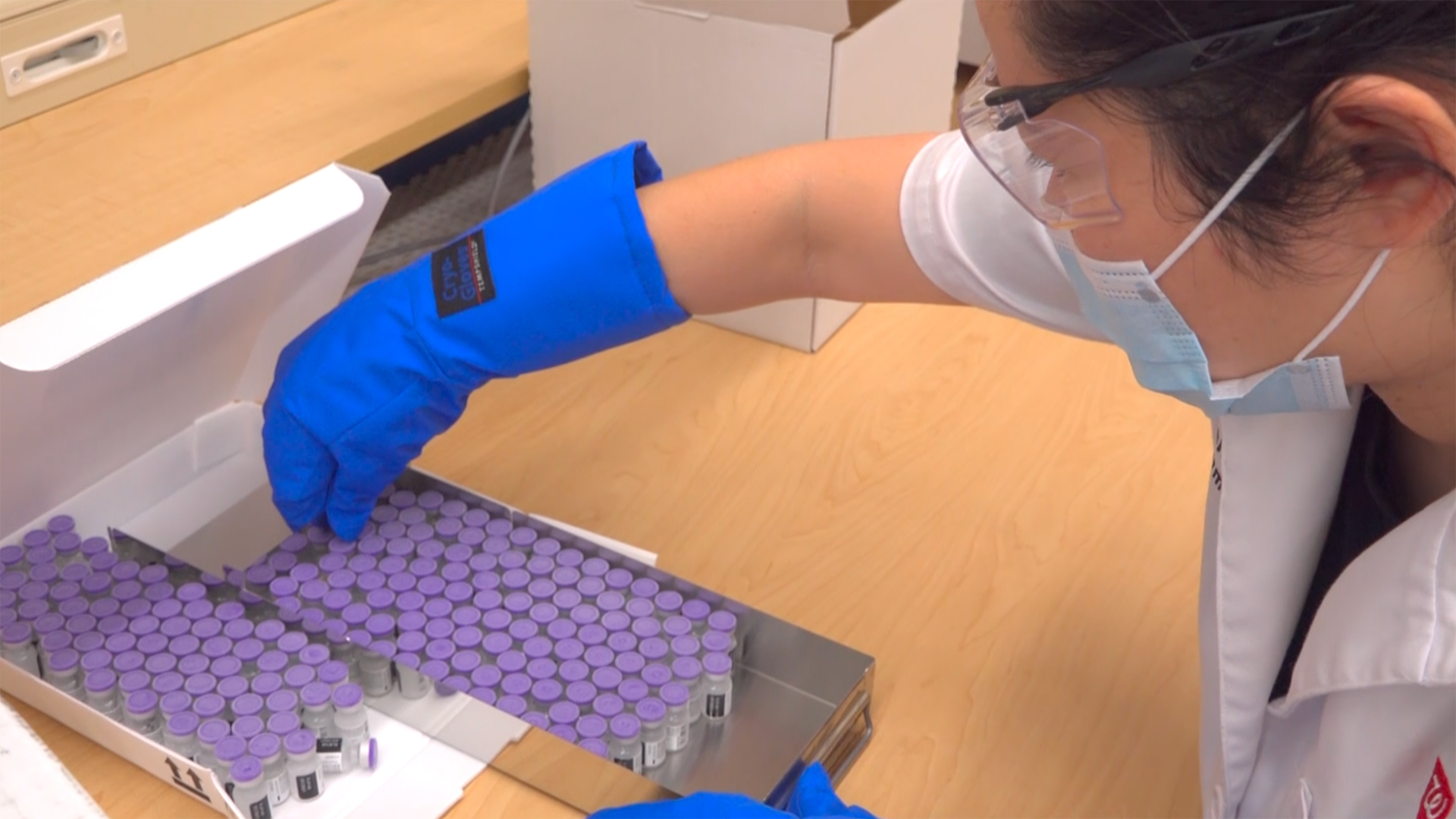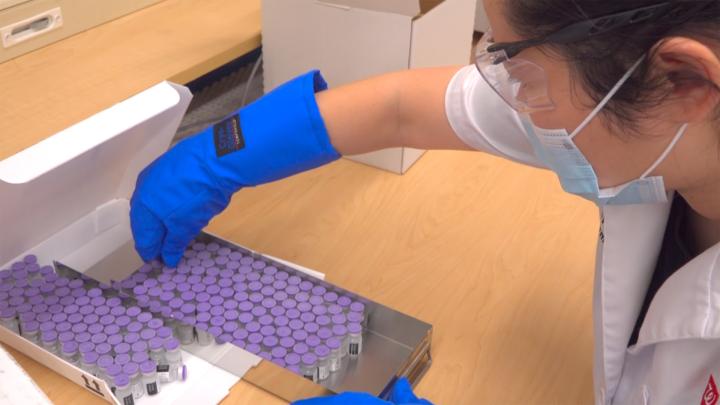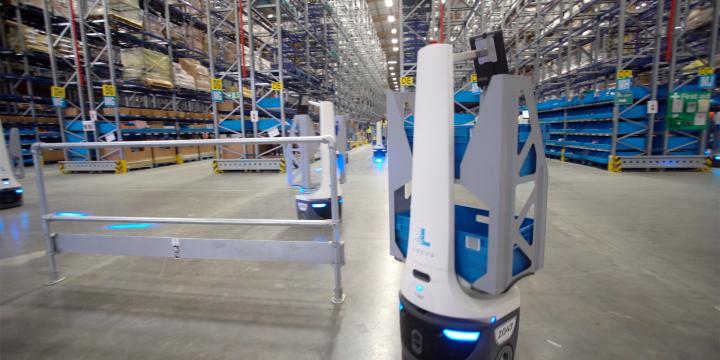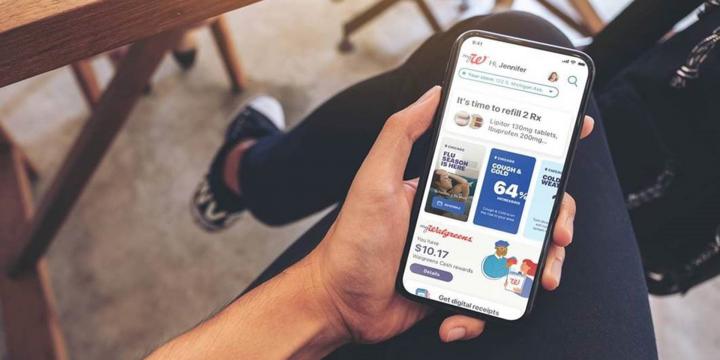“Rise and shine, baby! It's early, and let's get to it!”
It’s 7:15 a.m., and Luke Sauter kicks off the COVID-19 vaccine daily call with an energetic vibe. He and a group of 100 team members meet by teleconference every day at this time to discuss Walgreens’ Herculean efforts to help vaccinate America. It’s his second meeting of the day.
Sauter, vice president of specialty pharmacy, usually begins around 6:30, when he and Tasha Polster, divisional vice president of pharmacy quality, compliance and patient safety, and Rina Shah, group vice president of pharmacy operations and services, discuss the hottest of topics regarding all things COVID-19 vaccine. Today they joke about who’s getting more sleep (arguably, it’s Sauter).
Like a well-oiled machine, they go from their morning calls to meetings with various teams across the company, sharing progress, problems that need quick decisions and any roadblocks that need clearing.
We spoke with Sauter and Polster, who are leading Walgreens' efforts around COVID-19 vaccine distribution, to get a glimpse at a typical day in their lives – which, right now, are anything but typical.
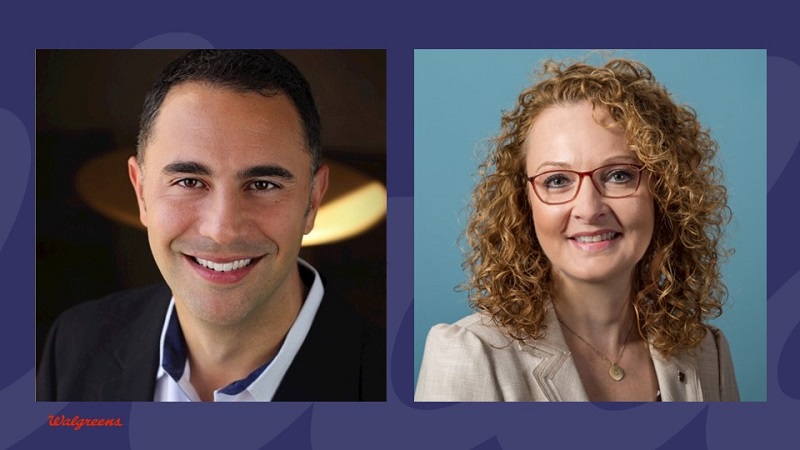
Describe your roles leading the teams working on Walgreens’ COVID-19 vaccine distribution.
Sauter: In my normal day job, I help with the complex conditions that we specialize in, but lately, my primary focus has been as the Walgreens program lead supporting Operation Warp Speed. I get to work really closely with people all across the company – people from the operations team, like Tasha, and people from our digital team, IT, marketing, planning and research ... you name it. Every part of the company really needs to pull together to make this happen. I'm helping to quarterback everything, but the magic is really happening at a team level. The folks who are working through this on a day-to-day basis, they're the ones bringing that to life.
Polster: I lead the pharmacy quality, compliance and patient safety team, and within that is also the retail immunization program for our more than 9,000 stores. So my team is helping to operationalize all of what's happening with the COVID vaccine, in addition to the flu and routine vaccines that we do. That includes policies and procedures, training, everything that would go into a new vaccine, in addition to all the complexities with this one.
What does your involvement in these efforts mean to you on a personal level?
Sauter: Although it's been a grueling and strenuous assignment, it's also been really positive in that I've gotten a chance to interact with people from different parts of the company whom I might not have had a chance to interact with. So I'm making new relationships, building new friendships. It's been a whirlwind of learning, getting a chance to see how local, state and federal government work in detail, having an opportunity to interact daily with the U.S. Centers for Disease Control and Prevention. The word that comes to mind is “privilege” because not only is it a tremendous learning opportunity, it's such an honor to work alongside everybody in this company who’s helping give all of us that step toward something that feels more normal.
We recently had a chance to brief General Gustave Perna, who’s leading the United States' Operation Warp Speed, on our preparation efforts, and he described it as a “battle rhythm.” I think that’s what’s different about this work. It's literally hour to hour, and we have a very disciplined approach. It’s a war of attrition, almost, because everything is changing on you every five minutes. And not just for me – the team has had to deal with remarkable amounts of ambiguity. It’s kind of like we’re building the plane while we fly it, and that's just the nature of the situation we're in. The federal government is developing their program and their protocols at the same time as we're preparing our readiness. And as they make decisions or changes at a federal level, we have to quickly react and adapt so that ultimately we're ready by the start date – because the one thing that's not moving is that start date. And then when you add in the complexity of each of the state jurisdictions having their own view of how things should go, you really have a massive amount of stakeholders to manage. Ultimately, this battle rhythm has been very important because it's given the team the discipline to stay focused on being ready by the start date without getting distracted.
Polster: I would echo exactly what Luke said about working with all areas of the company. And I think another thing that has been interesting is how we’re working with all areas of the industry. Everybody knows we're all in this together. So even though we have competitors and we're all vying for business, we know it's going to take all of us working together in order to get this over the finish line. And so I would say that there seems to be more collaboration among not only the pharmaceutical industry partners, but also the pharmacy industry as a whole because we're all on the calls together. We're learning from each other, we're sharing challenges and concerns. And I think that's been really rewarding.
How has COVID-19 changed your home life?
Sauter: To do this work, there's tremendous personal sacrifice that's happening around the company right now. I have a very supportive and wonderful wife, a 5-year-old daughter and a 10-month-old, and I don't see them. If I'm lucky, I see them for two minutes in the morning. By the time I walk out of this office at night, they're in bed. A week ago, my daughter, Gemma, slid a note under the door. It’s so sweet. I keep it on my desk. It says, “Hey, Dad. I miss you. Please come out of your office. Love you.” Every single person who's working on this has made personal sacrifices of varying degrees in order to satisfy the greater good. And I think that's a common denominator among all of us. We're putting the country and our communities before ourselves in this circumstance. When I do see her every so often, I say, “You know that virus thing that's out there? I'm working on the virus.” And every so often she'll say, “Dad, even though I don't see you, I'm really proud of you for trying to help with the virus.” At her age, she doesn't understand, but my hope is she never in her lifetime has to go through something like this again, you know? And so if we all do our jobs right, this will just be a distant memory for her. My 10 month old will never even know what happened. And what's cool about this is that a lot of the groundwork we're laying here in the unfortunate event this were to ever happen again will put us in a much better position as a company and as a country in the future.
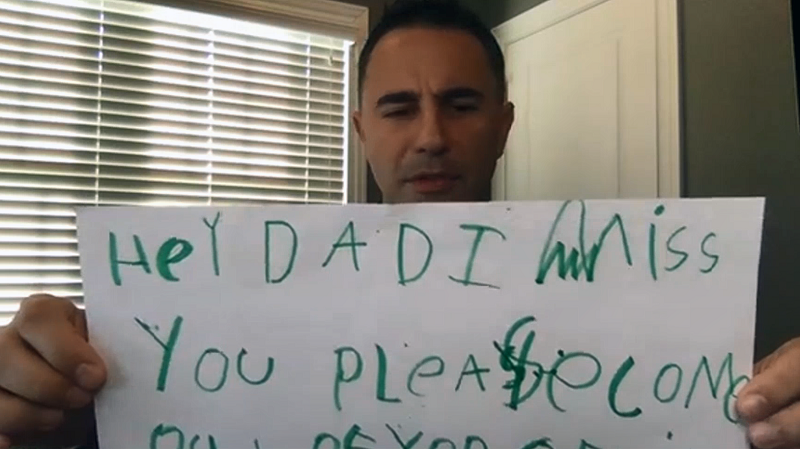
Polster: For me, learning how to work with my team and stay well connected to them remotely through technology, and learning how to manage my family remotely have been some of the biggest challenges. I have aging parents, and we’re in different states, so it’s been difficult not being able to see them or help them with various health issues that have arisen over the past year. The biggest change has been trying to keep everybody safe and figure out how we can help them through this crisis without being there or being able to visit.
What keeps you up at night regarding the vaccine?
Polster: Oh, my goodness. I am literally dreaming COVID vaccine. The second I lie down, I’m dreaming about vaccines [laughs].
Sauter: I always worry – and this is no matter what job I've ever had – that there's a person out there who has the best idea, and for whatever reason, they may choose not to share it. And in a situation like this, there are so many opportunities to be creative and problem-solve and try to figure out the right thing to do, and I worry that not everyone may feel like they have the platform to share their voice in that way. So we've tried very hard to make sure everybody has a voice, whether it's through Microsoft Teams channels, daily status calls and handing out our cell phone numbers so people can text us.
The other thing is that we know so much of the country is still experiencing hesitancy with respect to the vaccine. My sincere hope would be that as a country, as an industry, as a people, we can get more education into the hands of our citizens to allow them to make good decisions for themselves, whatever that may be. The truth is so many people aren't sure if they're going to take it, and they're not even sure what to base their decision on. And I think this is where Walgreens can be hugely helpful to the community. We’re trust brokers. We've got caregivers out there who can have a conversation with somebody about what will be a very personal care journey for them.
What are you most proud of when you think about all of our efforts?
Polster: Gosh, I would say one of the biggest things is the magnitude of this project and bringing it all together to literally get vaccine in people's arms by the end of this month. It has been monumentous. All the team members who have been tapped for their expertise and how willing they are to roll up their sleeves and help … it has been a lot of work from so many people and different business units and they are still managing their day jobs, too, in most cases. I am very proud to be part of an organization that comes together on something like this. It just reaffirms that we are all part of a big family, and how much we all care really shows through.
Sauter: Yeah, I agree. The circumstances that have been presented to the team are such that it is almost impossible to pull this off at all, let alone elegantly. And so what I'm most proud of is the team's resilience in a situation where they're on the clock and pressure is extremely intense. They've been able to navigate so much ambiguity and so many changes and still find a way to not take their eyes off the horizon. As a result, what we have today is a plan that’s actionable and executable. And we're going to be able to do it. I'm also really proud of the team's commitment and selflessness – I can't overemphasize that point. People are putting other things in their lives second and third to this, and we never even had to ask them to. They're just doing it because they know it's right. I'm really proud of what the team’s sacrifices will mean for our country's ability to move forward and heal.
